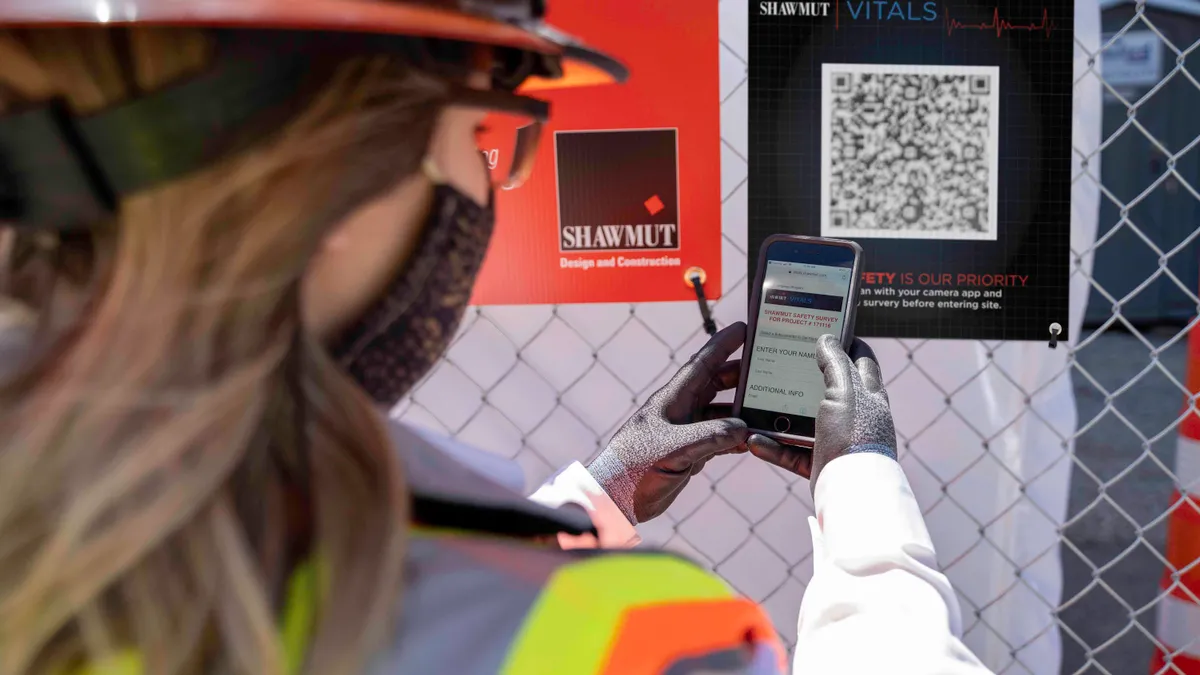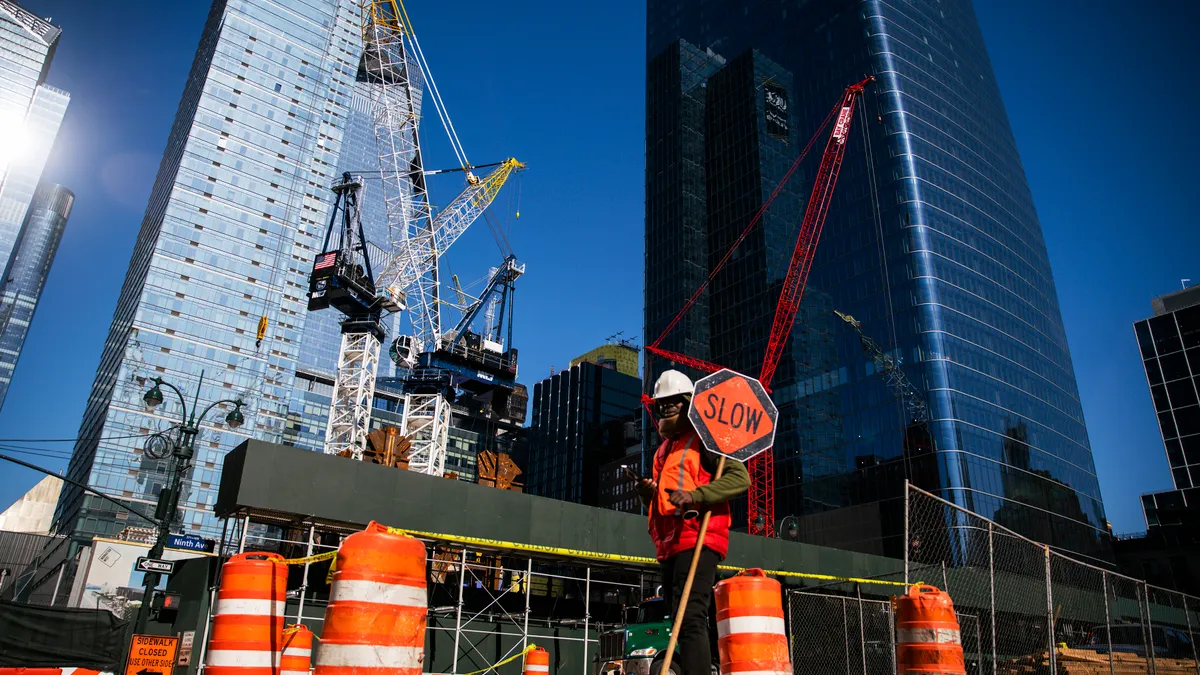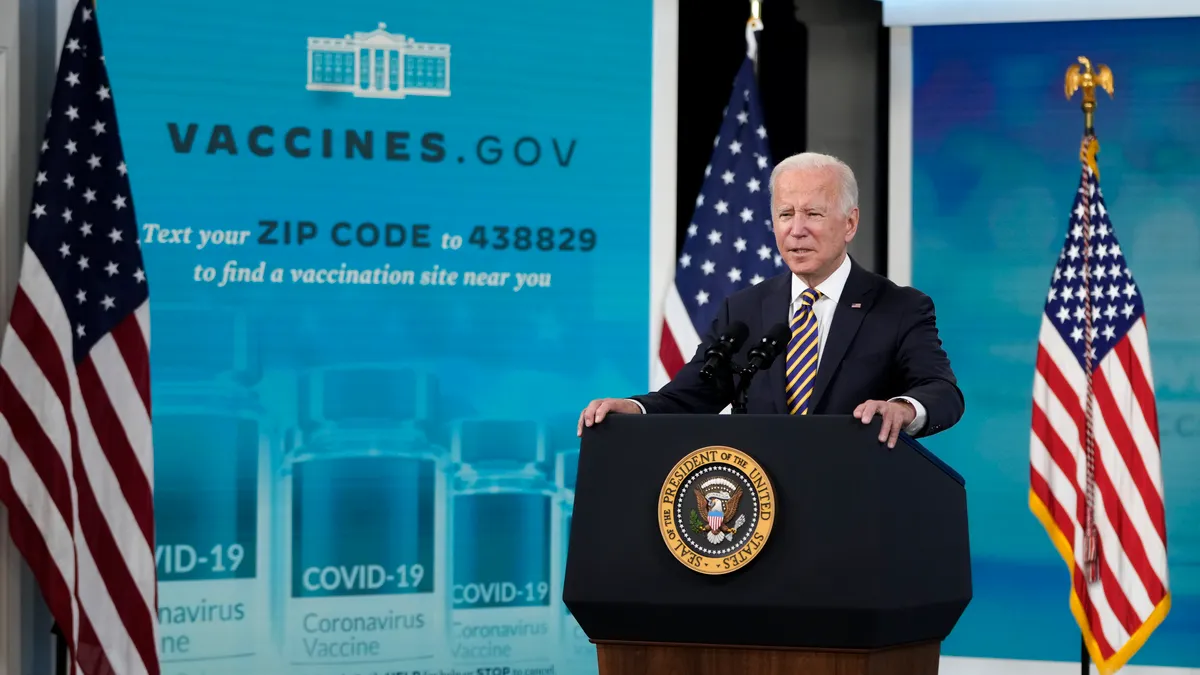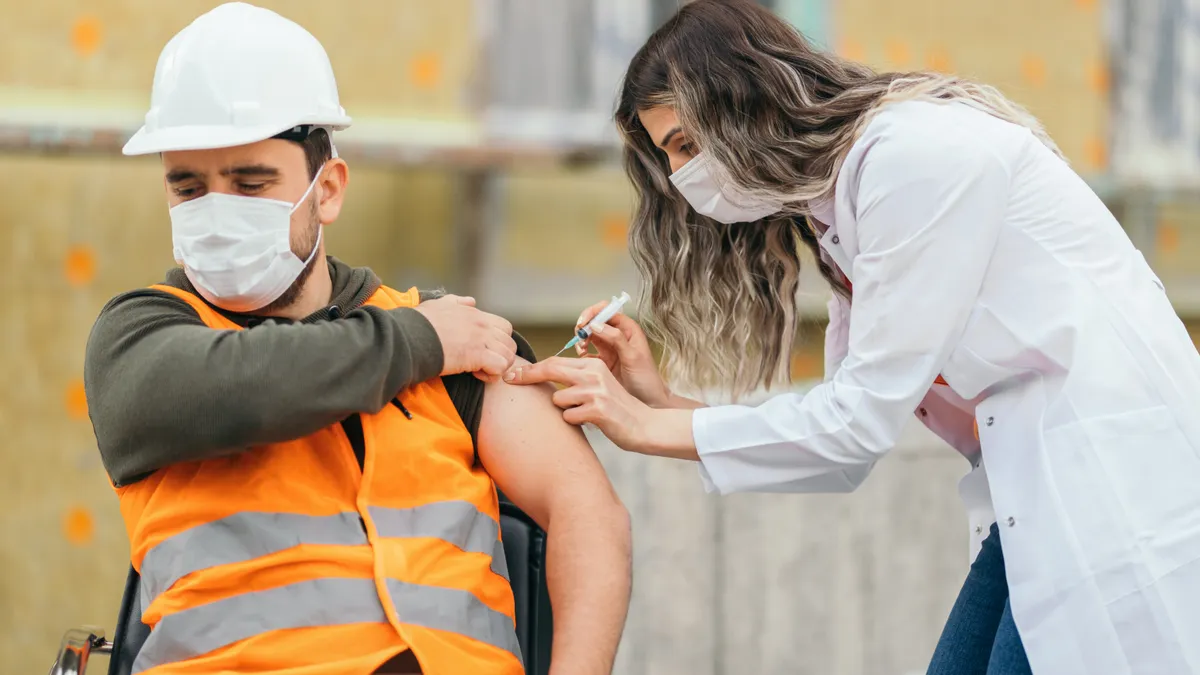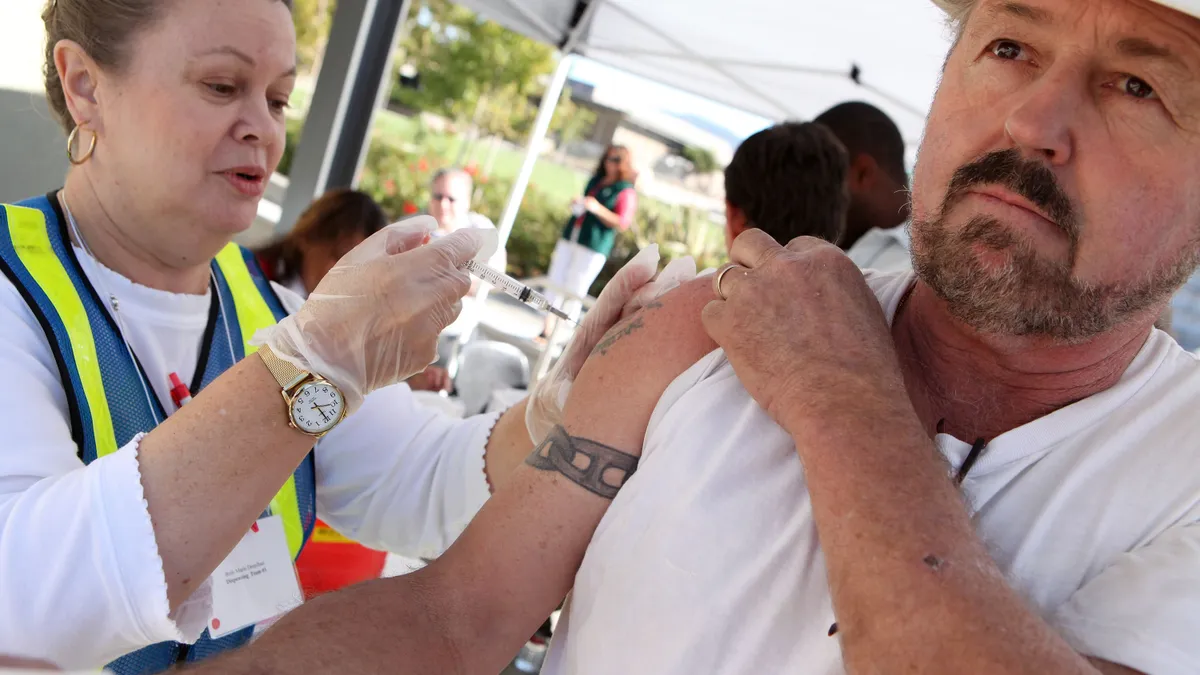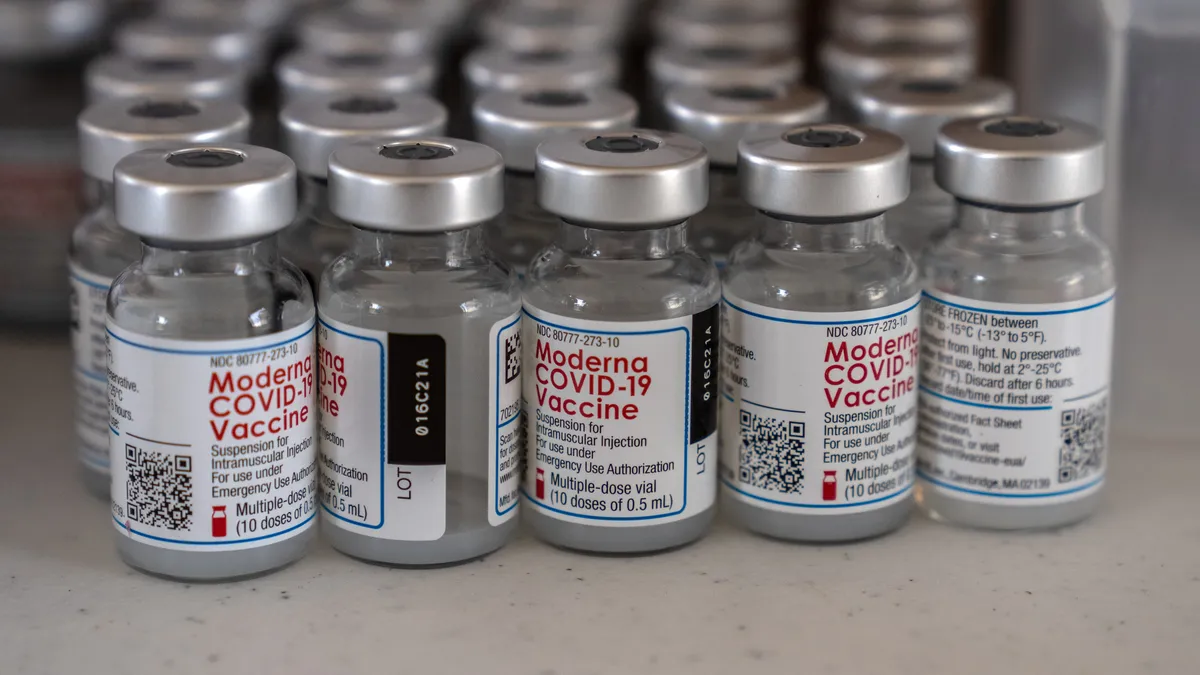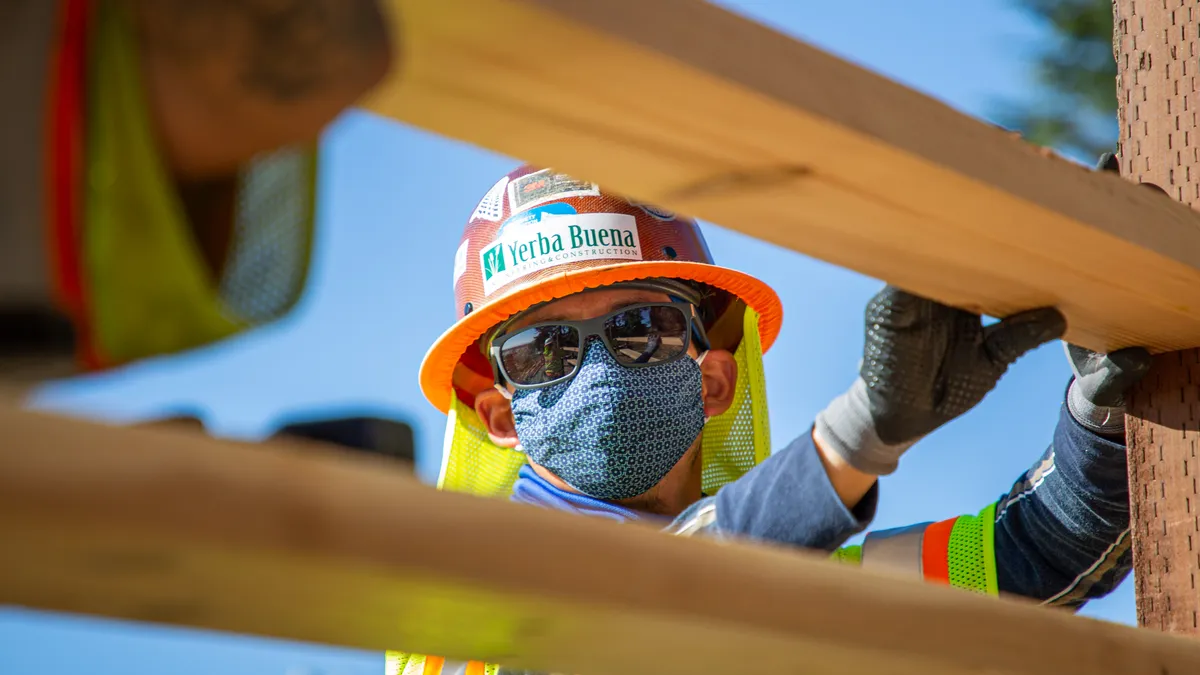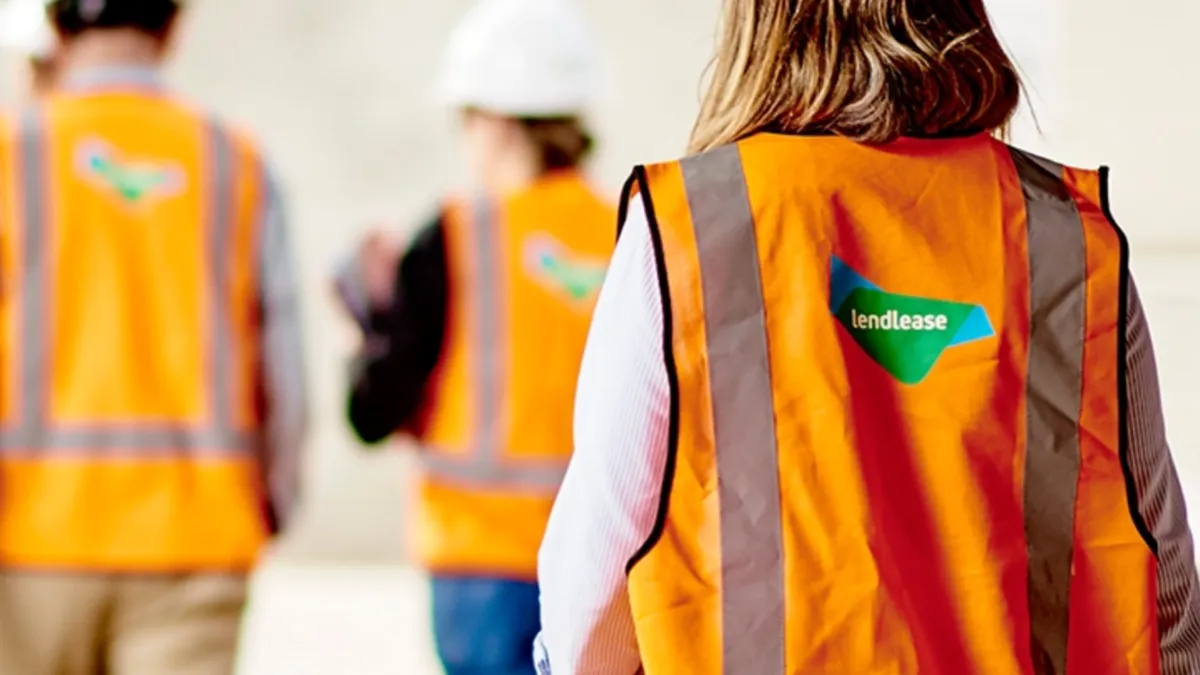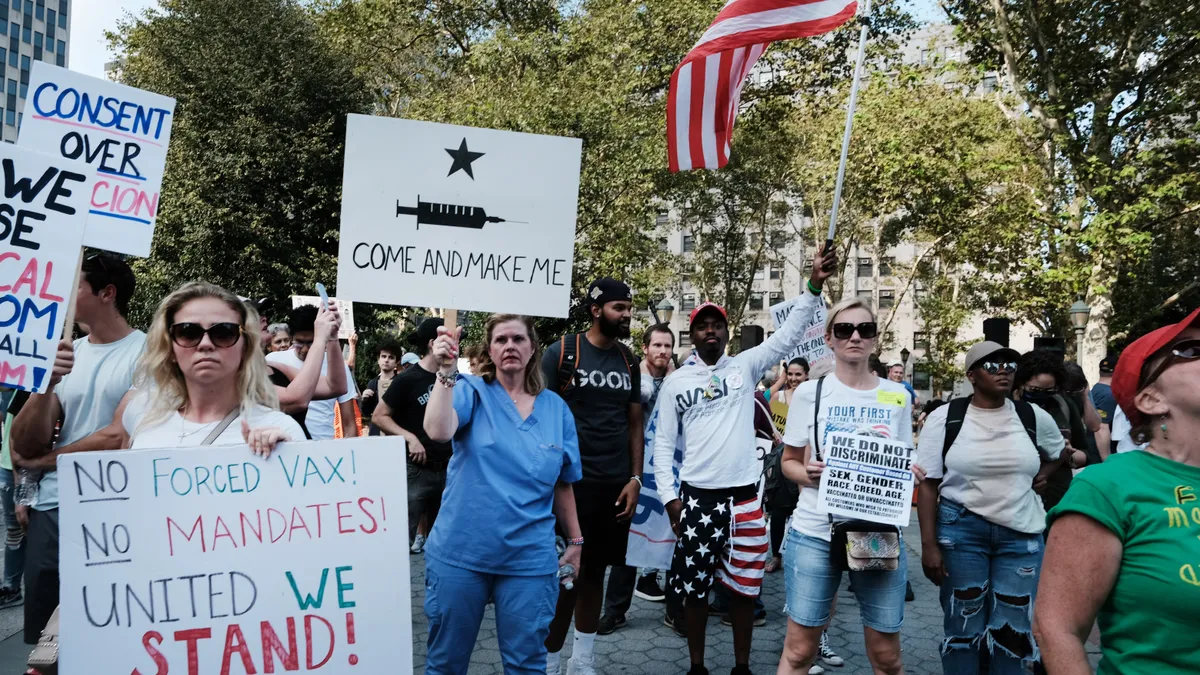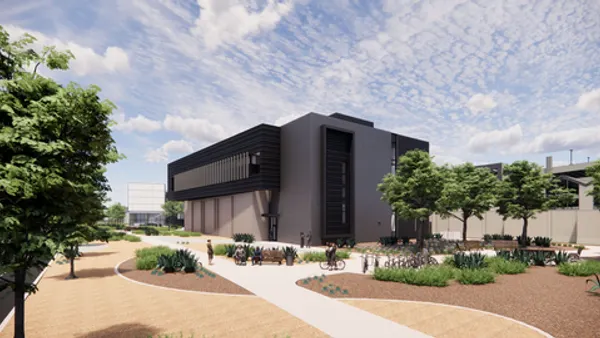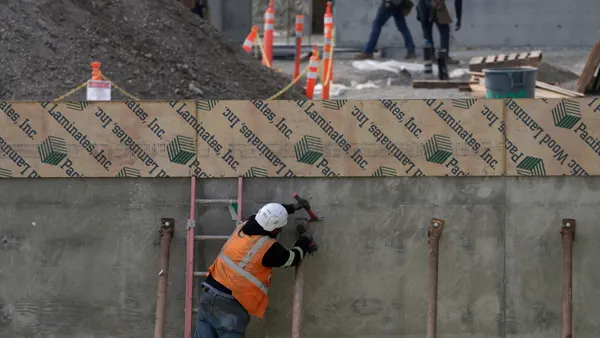This story is second in a series looking at the effects of the COVID-19 delta variant on the construction industry. Click here for part one.
Ezra Laniado has been fighting the pandemic on his jobsites, one COVID-19 test at a time.
"Construction is an amalgamation of labor and material," Laniado said. "Material's been hard enough to deal with, but if someone gets sick, and suddenly that whole crew that came in contact with him is now in quarantine, it makes it very difficult."
As the owner of Landmark Construction Crew, a Los Angeles-based commercial contractor, he learned early on that keeping his teams up and running meant making sure that anyone who got sick stayed away, and then immediately got tested.
"They can't come to work, and they have to get a COVID test before they come back, that's for sure," Laniado explained.
With the national rise of COVID-19 outbreaks in recent weeks due to the highly contagious delta variant, contractors and workplace health professionals have been advising a three-pronged approach of masks, social distancing on jobsites and, most importantly, stepped-up testing, especially for workers who haven’t been vaccinated.
But unlike early in the pandemic, contractors interviewed for this article noted that the widespread availability of testing and the quick turnaround times for results have drastically increased their effectiveness to prevent spread on jobsites.
"Testing is one of the basic things we can do to mitigate spread," said Dr. Brian Cruz, regional medical director at Connecticut-based PhysicianOne Urgent Care, which consults with employers on workplace health. "It allows you to isolate those who are positive and remove them from the workplace."
He also noted that while vaccinated people who were exposed but aren’t experiencing symptoms should wear masks and get tested three to five days after the event, according to CDC guidance, they don’t have to quarantine unless they receive a positive result.
Types of tests
Today’s tests come in two main forms: rapid antigen tests that look for specific proteins on the surface of the virus, and polymerase chain reaction (PCR) tests, which detect genetic material from the virus at the molecular level.
Cruz said PCR tests are still "the gold standard" for accuracy, but noted that rapid antigen tests can be upwards of 90% accurate when symptoms are present. However, they are less reliable in detecting asymptomatic cases.
Turnaround times for results have also improved since the beginning of the pandemic, which has helped to encourage workers to get tested, both for their own peace of mind, and to be able to return to work.
"By the time we get notification, which is usually the same day, it’s just one person going home," said Sheri Dizon, CFO of San Jose, California based Landmark Builders, which is not affiliated with Laniado's firm. "You don’t have to send the whole world home if they tested positive."
She noted that since testing is so quick, workers generally stay away from work voluntarily if they feel sick. "Most people are pretty good now. If they don't feel well, they don't come to work. And if they think they have it, they go get tested," Dizon said.
She also said her firm's workers and subs have done a good job with self-monitoring to help prevent workplace spread. For example, Landmark has rolled out Safe Site Check In, a site screening app that interviews workers before they come on the jobsite about current symptoms and whether they've had contact with anyone who has tested positive for COVID-19. The app also can be customized to ask about vaccination status.
After workers are successfully screened, they're issued color-coded wrist bands, which change each day.
"If they see somebody that doesn't have a wristband, we get a call that we need to check them out," Dizon said. "The subs police it for us."
Peace of mind
Milpitas, California-based Peacock Construction has used a combination of jobsite screening and testing to chalk up a record of zero workplace infections.
"We've gotten through at least this first part of the pandemic with zero jobsite transmissions," said Kyle Peacock, CEO. "We did have some cases on site, but we were able to identify them, isolate them and then contact trace from there."
Peacock has partnered with a local lab, and sends any workers who are displaying symptoms or not feeling well to get tested immediately, with same-day results.
"We’ve been consistently sending people there with just any type of suspicion just to make sure we don’t have a problem," said Kyle Peacock, CEO. "It takes 30 minutes. A lot of people just wait in the parking lot."
The fee to do so is $150 per test, but as the country heads into the second fall of the pandemic with the delta variant surging, it’s a small price to pay, Peacock said.
"That sounds like a lot, but when you consider if there is an exposure event and you have to shut down a job or your office, it’s cheap," Peacock said.



